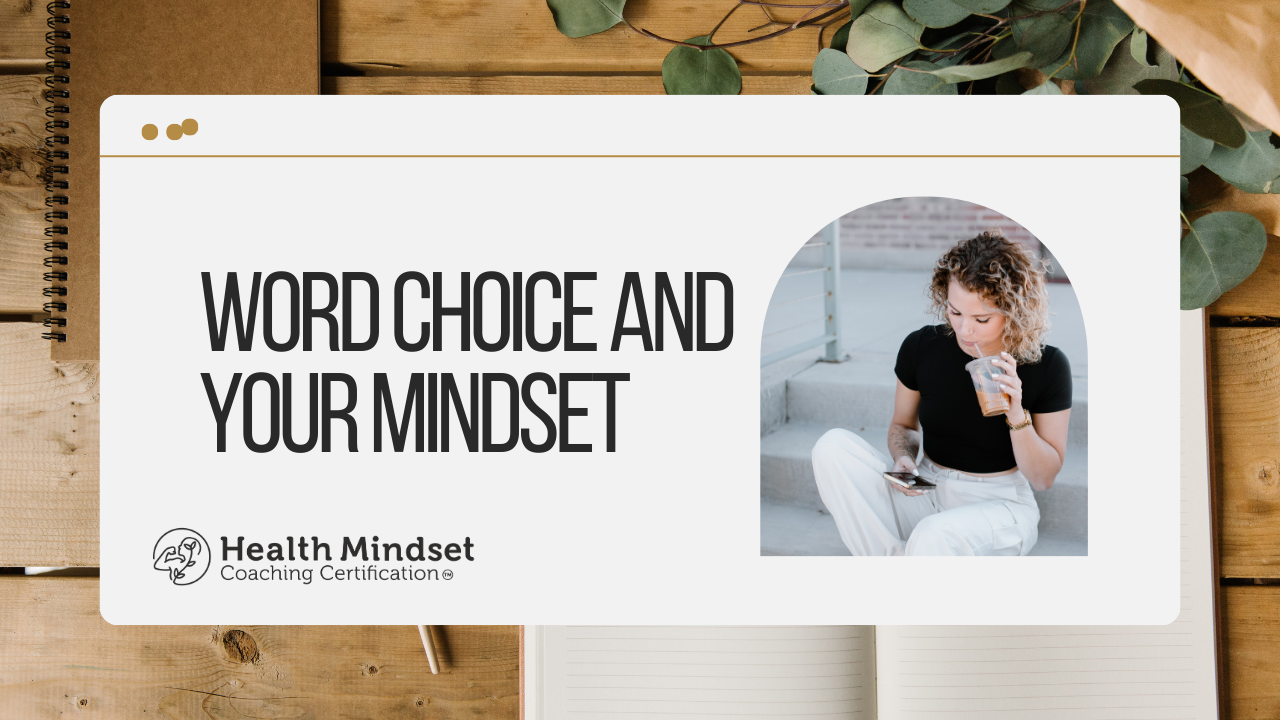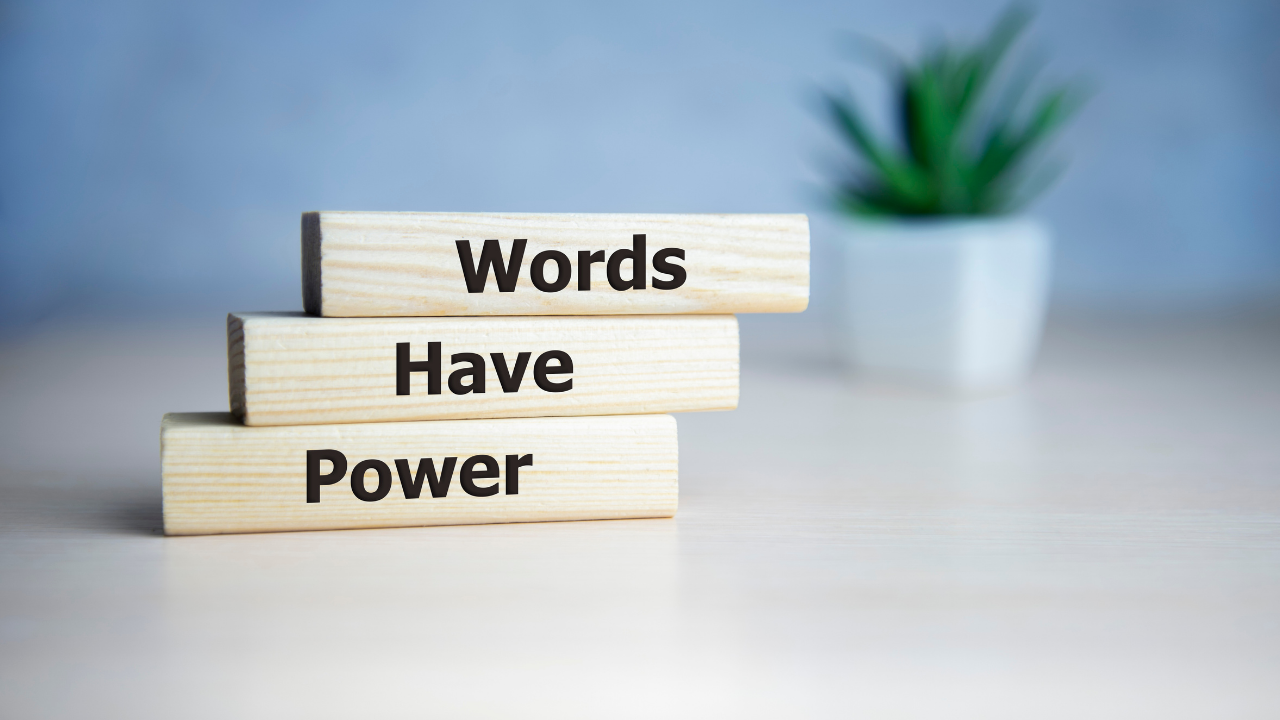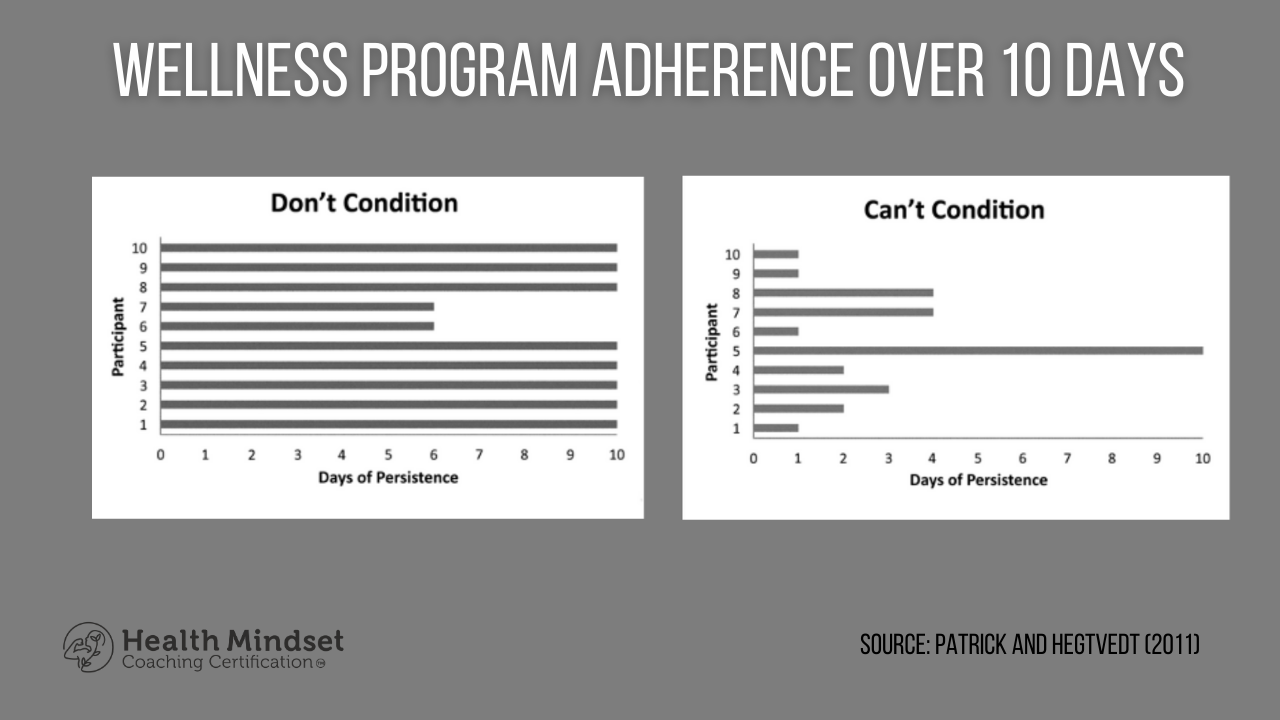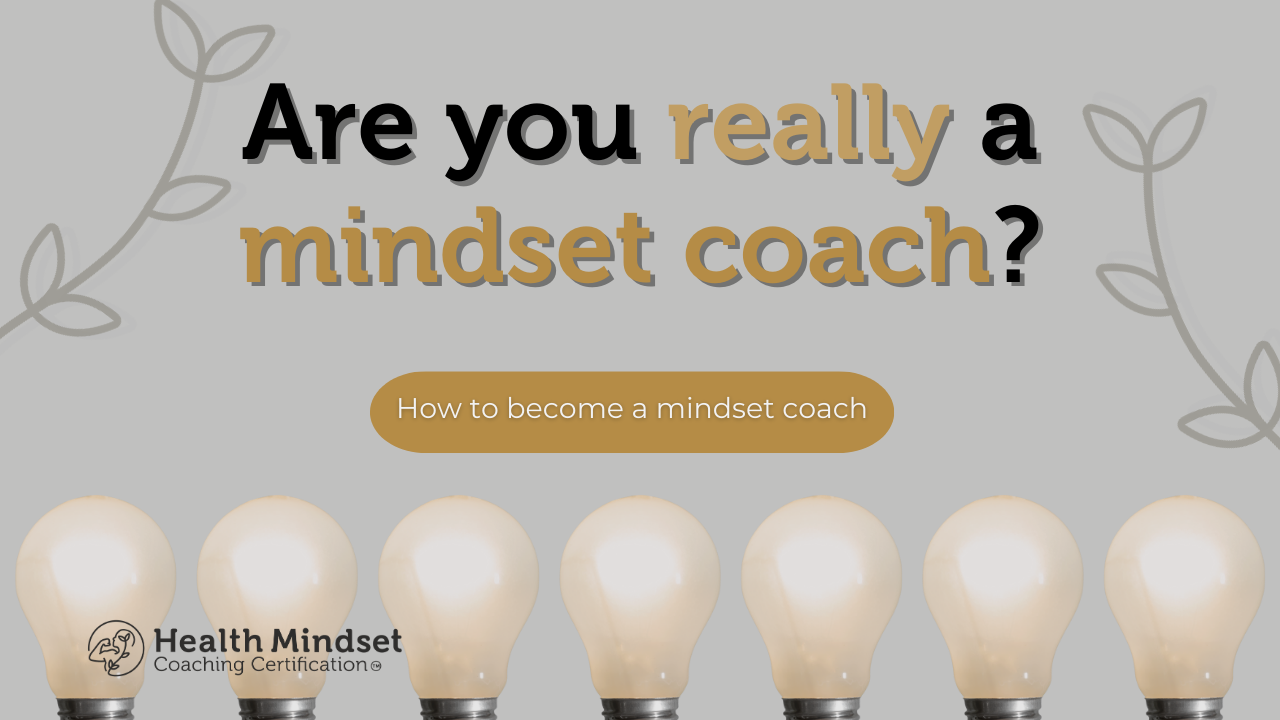How Word Choice Impacts Mindset
Mar 21, 2025
Our word choice, both in our thoughts and conversations, shapes our experiences, beliefs, and success.
As a fitness coach, your language can either empower your clients to build confidence and resilience or unintentionally reinforce limiting beliefs. Being able to identify when your clients are using positive and negative words can also help them shift their mindset and improve their thought patterns.
Small shifts in our word choice can create significant changes to our mindset.
Teaching your clients about word choice can help them embrace challenges, stay motivated, and develop a more flexible approach to their goals.
In this post, I'll talk about the power of words and share some research on how our language choices impact our mindset.
Table of Contents
Language Matters
And vs. But
Language is a Powerful Tool
Word Choice Impacts Willpower
The Underlying Meaning of Can't
The Underlying Meaning of Don't
Research Findings on Our Responses to Word Choice
Tips for Fitness Coaches
Check Out My Podcast
Sources

Language Matters
A seemingly little and or but can make a huge difference in our mindset. A single word holds more power than we might realize.
It’s often not “just semantics.” Especially when it comes to mindset and behavior change.
The words we use can dictate our experiences and, ultimately, our success or lack thereof.
And vs. But
When we use the word but, we tend to place our focus on the last half and discount or dismiss the first half. This is an example of cognitive rigidity.
However, when we use the word and, both halves of a statement feel like they can be true at the same time. This is an example of cognitive flexibility.
So, what does this look like in practice?
A common goal we see as fitness coaches is that someone wants to hire a coach to learn how to live a healthier lifestyle, lose excess body fat, and keep it off.
But a common fear is that they will hire a coach and see some progress but not be able to keep up with it, inevitably losing time and money and ending up back where I started.
Now, we can put those two concepts into a single sentence and see how word choice impacts the meaning of the sentence.
"I want to hire a coach and change my body composition, but I'm worried I won't be able to keep up with the program."
"I want to hire a coach and change my body composition, and I'm worried I won't be able to keep up with the program."
You can be afraid, worried, anxious, or concerned and do it anyway. It doesn't need to be a but that keeps you from trying.
People perceive things way differently when they use and rather than but. This simple shift in our word choice can make something go from a negative to a positive just by making this single-word change.

Language is a Powerful Tool
As silly humans do, we like to (try to) keep things clear and simple. Rather than considering that there could be multiple truths, we try to find the one right answer.
This ultimately can limit our functioning (our thoughts, feelings, sensations, experiences, etc.), but the reality is that just because two things are seemingly contradictory doesn’t mean they can’t occur at the same time.
The goal should be more cognitive and psychological flexibility and having more room to fully embrace an experience in all its messiness.
Of course, this can go beyond health and fitness behaviors.
- I value being independent, AND I want a life partner.
- I love experiencing new cultures, AND travel makes me anxious.
Toss a but in between those statements; now, suddenly, you have something else entirely.
- I value being independent, BUT I want a life partner.
So, having a life partner will cancel out your values? It shouldn't!
- I love experiencing new cultures, BUT travel makes me anxious.
So you won’t do something you love because of this anxiety? That definitely shouldn't be the case.
Word Choice Impacts Willpower
When working toward a fitness goal (or any goal for that matter), at some point, you'll likely have to refuse something in support of that goal. And when you do, the words you use matter.
Are you more likely to say:
- No thanks, I can't have dessert.
- No thanks, I don't want dessert.
Just like and vs. but seems interchangeable, can't and don't also seem interchangeable, but these words have an impact on how we perceive a statement.
Researchers hypothesize that these two words can represent two very different things.
The words can't and don't are two different types of refusal that differ in terms of what they mean regarding your commitment and attitude toward the goal at hand, which plays a major role in your motivation and success.
The Underlying Meaning of Can't
When you say you can't do something, it gives off the vibe of not being "allowed" to do the thing.
If you say, "I can't have dessert," that has nothing to do with your personal desire to have or not have dessert; you're simply being kept away from it.
This phrase makes it feel like you have a lack of control because there is something external keeping you from having the dessert.
A lack of personal control can lead to a lack of self-control and motivation.
The Underlying Meaning of Don't
When you say you don't do something, it gives off the feeling of a firm attitude rather than a temporary "I'm not allowed."
When you don't do something, that's because it's your choice, and you are in control.
This statement serves as an affirmation to yourself regarding your willpower, and having feelings of control and empowerment leads to even more self-control and motivation to pursue your goals.
Research Findings on Our Responses to Word Choice
When I came across this study, I was so impressed by the results. One word can make a huge difference.
In the study by Patrick and Hegtvedt (2011), 30 women participated in a health and wellness program, and their adherence was tracked over 10 days.
The participants who used "I don't" statements were significantly more likely to stick with the program compared to the participants who used "I can't" statements.

What this means for you and your clients is that the words you use matter.
If you're struggling to "stick with it" or know that you're "getting in your own way," audit yourself to see if what you're saying to yourself and others is empowering or if it's taking away control.
Something not mentioned in this research is how this word choice impacts your mindset.
You bet your butt a big part of these results is due to the fact that “I can’t” is a favorite phrase of the fixed mindset, and if you’ve been around here for more than a minute, you know where that will get you.
Tips for Fitness Coaches
As a fitness coach, you're trying to help your clients improve their overall well-being, which includes helping them embrace a growth mindset.
Teaching your clients about the power of words can have a positive impact on their success in their health and wellness journey.
It's important to pay attention to how your client speaks during your check-ins with them to identify this negative language early on to help them make a mindset shift. Encourage your clients to look out for how often they use but instead of and, or how often they say they can't rather than they don't do something.
Simply being aware of the way we speak and think can help us shift and improve our well-being.
If you're a fitness coach who is struggling to help their clients shift their mindsets, you should check out the Health Mindset Coaching Certification.
It's your opportunity to learn how to help your clients tackle all-or-nothing thinking, overcome self-sabotage, develop self-control, and increase motivation and follow-through (meaning no more getting ghosted on check-in day).
This 13-week program will help you develop the skills to effectively help your clients stick to the plan, stick with you, and achieve long-term success in their health and fitness goals.
You'll learn research-backed methods from Cognitive Behavioral Therapy and other psychological tools that will help your clients embrace a growth mindset and create lasting behavior change.
Join the waitlist here, and you'll get immediate access to some free primer materials to get you started!
Check Out My Podcast
I also have a podcast episode on Not Another Mindset Show where I talk about the power of words and how they may show up in your or your client's lives.
embed episode 34
In this episode, I go deeper into the research on don't vs. can't and share more on the cognitive flexibility from and vs. but.
Sources
Vanessa M. Patrick, Henrik Hagtvedt, “I Don’t” versus “I Can’t”: When Empowered Refusal Motivates Goal-Directed Behavior, Journal of Consumer Research, Volume 39, Issue 2, 1 August 2012, Pages 371–381, https://doi.org/10.1086/663212




